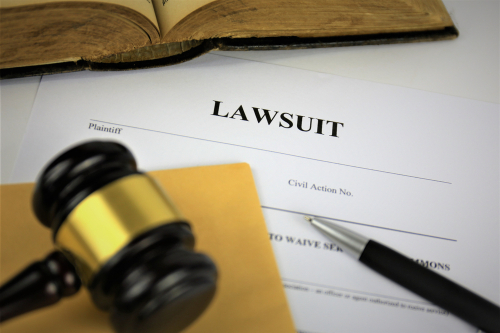Second lawmaker sues over Illinois stay-at-home order; first plaintiff won limited TRO

Image from Shutterstock.com.
The co-chairman of President Donald Trump’s 2016 presidential campaign in Illinois has filed a lawsuit that challenges the state’s COVID-19 stay-at-home order, calling it “as broad as an ocean.”
Illinois state Rep. John Cabello filed the lawsuit in Winnebago County on Wednesday, two days after an Illinois judge in Clay County ruled against Illinois Gov. J.B. Pritzker in a lawsuit by a different Republican state lawmaker, report the Chicago Tribune, the Chicago Sun-Times and WTTW.
In the first suit, Judge Michael McHaney enjoined the stay-at-home order but only as applied to the plaintiff, Rep. Darren Bailey, according to previous coverage by the Chicago Tribune.
Cabello is asking the court to enjoin the stay-at-home order throughout the state. He told the Chicago Sun-Times and WTTW, however, that he won’t seek a temporary restraining order as long as he sees an effort to allow state lawmakers to get back to work.
Cabello wants at least one in-person meeting of the General Assembly to allow approval of virtual sessions. Pritzker said Wednesday he has left it up to the legislature to decide when to meet.
Bailey had argued that Pritzker did not have the authority under the state’s Illinois Emergency Management Agency Act to issue his stay-at-home order, and if he did, that authority expired after 30 days. Only the state department of health has the power to isolate or quarantine people and to delegate that power to local health departments, the suit says.
Cabello’s suit also claims that Pritzker’s order violates federal and state constitutional protections that bar the deprivation of life, liberty or property without due process of law. In addition, the order is not narrowly tailored to achieve the goal of saving lives, the suit says.
“Pritzker has perverted the emergency provisions of the [Illinois law] in an effort to rip the sacred responsibility of the health and lives of the people away from where the legislature placed it” with health departments, the suit says. “In doing so he took complete control of the free movement of every citizen within the state of Illinois, which for all intents and purposes has created a police state.”
Illinois is asking the state supreme court to directly hear an appeal of McHaney’s decision.
Write a letter to the editor, share a story tip or update, or report an error.


